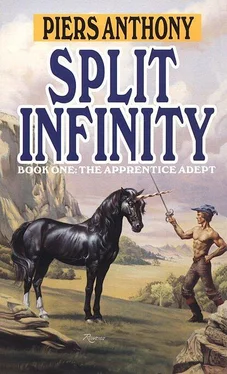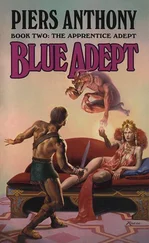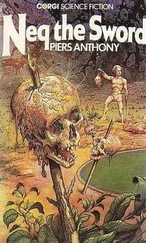Piers Anthony - Split Infinity
Здесь есть возможность читать онлайн «Piers Anthony - Split Infinity» весь текст электронной книги совершенно бесплатно (целиком полную версию без сокращений). В некоторых случаях можно слушать аудио, скачать через торрент в формате fb2 и присутствует краткое содержание. Год выпуска: 2011, Жанр: Фэнтези, на английском языке. Описание произведения, (предисловие) а так же отзывы посетителей доступны на портале библиотеки ЛибКат.
- Название:Split Infinity
- Автор:
- Жанр:
- Год:2011
- ISBN:нет данных
- Рейтинг книги:5 / 5. Голосов: 1
-
Избранное:Добавить в избранное
- Отзывы:
-
Ваша оценка:
- 100
- 1
- 2
- 3
- 4
- 5
Split Infinity: краткое содержание, описание и аннотация
Предлагаем к чтению аннотацию, описание, краткое содержание или предисловие (зависит от того, что написал сам автор книги «Split Infinity»). Если вы не нашли необходимую информацию о книге — напишите в комментариях, мы постараемся отыскать её.
Split Infinity — читать онлайн бесплатно полную книгу (весь текст) целиком
Ниже представлен текст книги, разбитый по страницам. Система сохранения места последней прочитанной страницы, позволяет с удобством читать онлайн бесплатно книгу «Split Infinity», без необходимости каждый раз заново искать на чём Вы остановились. Поставьте закладку, и сможете в любой момент перейти на страницу, на которой закончили чтение.
Интервал:
Закладка:
Apart from age and sex, the resemblance of the holder of Rung Nine to Stile was distant. He was tall and thin, like a stooped scholar. The appearance fit the reality; his name was Tome, and he was a researcher for a studious Citizen. Tome was very much a creature of intellect; he invariably selected the MENTAL column when he had the numbered facet of the Grid, and MACHINE when he had the lettered facet.
Because Tome could beat most people in games of the mind, and hold even when assisted by machine—especially when the machine was a computer—he was successful enough to hold his Rung. Because he was limited, he was not a potential champion. Tome was known as a 2C man—the definition of his specialties. Second vertical, third horizontal. If a person were weak in these, he would have trouble passing Tome.
Stile was generally strong in 2C. He could handle Tome, and the other man knew it. Stile simply had not wanted the Rung, before.
They went to a booth and played the Grid. Stile had the numeric facet; good. He regarded that as more fundamental. He would not choose MENTAL, of course; this was not a fun challenge where he wanted a good Game, but a serious challenge where he needed to win with least risk. He did not care for the 50-50 chance that CHANCE offered. Tome was pretty fair on machine arts, such as the theremin, so that was not a good risk. So it had to be Stile’s strong column, PHYSICAL.
Tome chose MACHINE, of course. Immediately the subgrid showed:
1. MOTION 2. ACTION 3. OBSERVATION
Nine types of machine-assisted competitive sports, ranging from cycle racing in 1A to stellar location in 3C. Stile had the letter facet of this grid, unfortunately; he could not select the machine-racing column, and knew that Tome would not. Tome would go for observation—unless he figured Stile for water. That would put them in 3B, which amounted to sonar location of sunken ships. Tome was not really sharp at that. But he was a fair hand at water-hydrant dueling, so might go for ACTION. Therefore Stile went for AIR instead.
He won. It came up 1C: dueling by guns, lasers, and similar powered distance weapons. Tome was good at this, but Stile was better, and both knew it.
DRAW? Tome’s query came on the panel. It was legitimate to make such an offer at any stage in the selection, and it was often done as part of the psychological combat. In this case it was an admission of weakness.
Stile hit the DECLINE button, and followed with CONCEDE?
Tome hesitated. Seconds passed. If he did not negate within fifteen, the concession would stand. Concession was always a demand, never an offer, at this stage: another rule to prevent irresponsible players from tying up the grids when they had no intention of playing a Game. But at last the DECLINE button lit.
Now the lists of individual variants appeared on the screen. Tome, the one challenged, had the first choice. He placed antique pistols in the center square of the nine-square subgrid that formed. Stile followed with a laser rifie in a comer. These were not real weapons; they would simply mark the target with a washable spot of red dye on the section hit. Very seldom was a live-ammo duel permitted, and never in connection with the Tourney.
As it happened. Stile and Tome shared a liking for antique weapons and forms, and when the grid was completed and played it came up 2B, the original pistols. The two of them walked to the dueling range nearby, while Sheen went to the spectator gallery. The holographic recording apparatus was operating, of course; every formal match was filmed, in case there should be any challenge to the result. Scholars liked to review the games of Tourney winners, right back to the original move up the rungs of the ladder, tracing with the wisdom of retrospect the elements that made those particular victories inevitable. This also meant, incidentally, that no agent in the audience could laser him in the knees or elsewhere; that shot would be recorded and the assassin apprehended immediately. This was no horse race!
They had to wait a few minutes for the use of the range. Dueling was popular, and there were a number of specialists who dueled every day. Had Stile been playing the Game with one of them, he would have avoided this option at any cost. That, of course, was the strategy of the Game; the key to victory lay in the grids. A good gridder could get by with very few Game specialties, always directing the selection to one of these. Just as Tome had to master only seven of the basic sixteen choices of the primary grid, and a proportionate number of each subgrid. An opponent could only force a selection within those seven. If an opponent’s skills overlapped those of Tome, he could be virtually assured of landing one of these, to Tome’s disadvantage. For a player who was serious, it was best to be strong in all boxes. That kept the options open, preventing him from getting trapped. Stile himself had strengths in all boxes; that was why he was the superior player here.
“You can’t be going for the Tourney,” Tome remarked. “You have two more seasons free. When the top five enter this year, we’ll both be jumped into qualiication for next year’s Tourney. I figured you’d be sliding down about now. What’s your move?”
Stile smiled. “See that girl in the stands? The pretty one? She put me up to it.”
“Oh, a Game-digger!” Tome squinted at Sheen. “For one like that, I’d make a move, certainly! She much on the mental side?”
“Limited as a robot,” Stile said.
“Going to move up to Rung Six, so you’ll be Number One after the cut? That’s risky. If someone gets sick at the last moment before qualification, you’ll be shunted into the Tourney.” Tome obviously had no doubts, in his mind, about the outcome of this match, and hardly cared; he had no intention of skirting the Tourney too closely.
“Going to Rung Five,” Stile said. “I prefer that this not be bruited about.”
Tome’s head snapped around in surprise. “This year?”
“Not entirely my choice. But I’ve had some problems in my employment.”
“So I have heard. Knee injury, wasn’t it? I’m surprised you didn’t have immediate surgery.”
“I got scared of it.”
Tome laughed. “You, scared! But I must admit you do look somewhat ravaged. Must have been a hard decision.”
“It was,” Stile agreed, though he knew that what showed on his body was the ravage of his two-day confinement in the Black Castle without food and water, rather than his mental state. Sheen had done what she could for him, but he had not yet properly recovered.
“Well, I wish you well,” Tome finished sincerely. The range cleared, and they entered. On a table at the entrance lay the set of antique pistols, with elaborate pearl handles and glistening black steel. A pistol specialist could have called out the exact vintage and make—probably eighteenth-century European—but Stile was concerned only with their heft and accuracy. Though they were replicas that fired no balls, they bucked and smoked just like the real ones.
Stile had to be sure to win this match; he could not rechallenge until the rungs had shifted, and this close to the Tourney there was unlikely to be much shifting. Players were either hanging on to their rungs to be sure that they qualified, or trying to stay below qualification range. Stile’s late decision to enter the Tourney was unusual, and would make ripples. He was going to have to bump someone who was depending on the Tourney as his last chance for extended tenure.
The Citizens had so arranged it that there were always more serfs interested in entering the Tourney than there were available slots—especially in Stile’s own age range, where many mature people were ending their tenures. There were tenures expiring in all age ranges, for serfs could enlist at any age, but the older ones generally lacked the drive and stamina for real expertise in the Game, and the younger ones lacked experience and judgment. The ladders of the Thirties, male and female, were the prime ones.
Читать дальшеИнтервал:
Закладка:
Похожие книги на «Split Infinity»
Представляем Вашему вниманию похожие книги на «Split Infinity» списком для выбора. Мы отобрали схожую по названию и смыслу литературу в надежде предоставить читателям больше вариантов отыскать новые, интересные, ещё непрочитанные произведения.
Обсуждение, отзывы о книге «Split Infinity» и просто собственные мнения читателей. Оставьте ваши комментарии, напишите, что Вы думаете о произведении, его смысле или главных героях. Укажите что конкретно понравилось, а что нет, и почему Вы так считаете.










